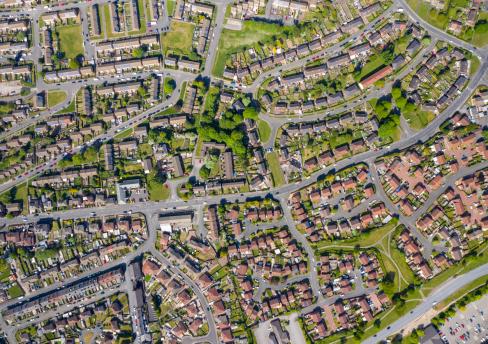As I start to prepare my report to clients on the investment property they are about to purchase I am conscious that it's important to keep access and egress rights in mind, not only to get to the property but to get out of it, including in the case of fire.
Rights of access to a public road or over neighbouring land
One key box to tick on, a property acquisition, is that it has adequate access rights. This check should involve finding out how the property is accessed in practice. Often the property title boundary abuts a public roadway and it is assumed that the entrance to the site will be on that boundary - but, in practice, this may not be the case.
Once we know the actual access and egress routes to and from the property, we then need to check that it or they are either directly from a publically adopted road or that the title contains suitable, and properly constituted, rights of access over any land that lies between the access point on the property boundary and the public road. This exercise can include the obtaining of a detailed roads adoption report.
If there are servitude rights of access and egress in the title over neighbouring land, we need to check various things:
- The routes must suitable for the purpose that our client will be using the property. For example, if our client is buying a site with the intention of developing it, we need to ensure there is no restriction on construction traffic using the site.
- We must be sure that there can be no argument that use of the route to access properties built on the developed site will increase the burden of the servitude on the neighbouring land beyond that which was covered by the original right.
- If an entrance to a site includes an access bell-mouth, we need to be sure that the rights exist over the whole extent of it (or that the whole extent of it is adopted). Whilst the footpaths and surrounding roads might be adopted, sometimes parts of the bell-mouth or verge area are not adopted. Obtaining a roads adoption report to confirm the position is imperative
If it turns out that inadequate access rights exist then, before committing to the purchase, the buyer might need to approach the owner of the neighbouring land to get the necessary rights or take out title indemnity insurance. In some cases, the issue may be so key to the development or value of the property that if rights cannot be acquired from the neighbour the buyer will not proceed.
Fire regulations
Another similar area that needs to be considered is that of fire escape egress.
First we find out where the escape exit doors on a building are located and check what is on the other side of the doors. They might open out onto:
- a public road or
- ground within the title of the property (e.g. a yard at the rear) or
- land belonging to a neighbour.
You might think that the first two would be fine and for the third we'd need to check that the title contains the appropriate servitude rights over the neighbour's land. To an extent that is correct, but it can be slightly more complicated that with both the second and third categories of egress.
The Fire (Scotland) Act 2005 sets out what is required for sufficient escape routes for employees. It could be that the area of land within the property title, or on the neighbour's property, is not large enough to comply with fire regulations and that access, for fire purposes, may be needed over neighbouring ground (or more neighbouring ground) to get to a suitable place of safety. This is something on which we, as lawyers, would consult with our buying client's surveyor.
Clearly adequate rights must be secured - as the property cannot be operated without compliant fire escape egress arrangements.
If you'd like to speak with us, please contact our team.
The content of this webpage is for information only and is not intended to be construed as legal advice and should not be treated as a substitute for specific advice. Morton Fraser LLP accepts no responsibility for the content of any third party website to which this webpage refers. Morton Fraser LLP is authorised and regulated by the Financial Conduct Authority.










